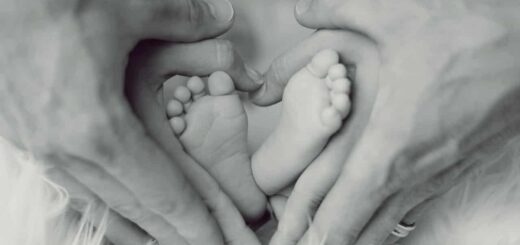Who wants to adopt and Why?

Couples with and without children, single women and men want to adopt a child. The motives for this desire can be divided into conscious and unconscious, of which the people who have them are not even aware, but it is the latter that drives this desire and they also determine the nature of the relationship in the future. It is important, therefore, that adoptive parents be as aware as possible of their own needs and desires that they want to fulfill by adopting someone else’s child.
Most often the conscious reason for adoption is the inability to have their own child, due to infertility, age and other restrictions, the desire to do good, to become needed, loved by someone.
Unconscious motives are always purely individual, for example, to fill the feeling of inner emptiness, to replace the loss of a loved one with a child, to implement through a child its narcissistic aspirations, etc.
It is clear that single-parent adoption brings additional challenges that both the child and the parent will have to deal with. One parent will not be able to play the role of both, so some deficit in the paternal or maternal role will be inherent, although this does not mean that the difficulties are insurmountable.
Adoption by an Infertile Couple
Such a couple by the time they decide to adopt is usually already undergoing a long and traumatic experience of many years of treatment, hopes and disappointments. She has to go through a lot of grief: the inability to be “like everyone else”, to conceive, bear, give birth, breastfeed their own child. Often this grief remains unresolved, in which case it will inevitably interfere in the relationship with the adopted child. It is very important that the child is not the last chance to be “like everyone else,” a cure for depression, but that the leading is the desire to give, not to take, to use.
It is a fact that sometimes, some time after adoption, a previously infertile woman becomes pregnant. This proves the great influence of the psychogenic factor in infertility. Perhaps the cause of such infertility was an unconscious fear of parenthood, a ban on having their own child, and then, after a successful experience of communication and raising someone else’s child, these bans and fears weaken. Here already there is a question of the relationship to both children, the issue is often difficult.
The substitute child.
Especially dramatic is the case when the decision to adopt a child arises as a result of the loss of a native child. The adopted child must then replace the place of the deceased. Parents do not burn out their loss, they try to drown it out by taking care of another child, who becomes a substitute, he could literally be assigned the role of a double. The problem is that such a solution does not diminish the grief that was simply in a state of denial, the substitute child will never replace the lost child, who, in addition, will be increasingly idealized. This is a very traumatic situation for the foster child, since he does not exist in and of himself and is not interested in his foster parents, he is called to play a role, to conform to expectations, in which he will never succeed by definition. The result is inevitable disappointment, bad relationships up to and including rejection of the adopted child, parental guilt, and powerful trauma for the child.
Single-Parent Adoption
If a child is adopted by a single woman, it is most often a mature woman, with an established career, a sufficient level of prosperity. The desires that she carries out, adopting a child – this is to be needed, loved, important, and often to fill the inner emptiness. Usually in her environment there are men who can play an important role in the formation of the child’s personality, but still, this influence is not so great, she remains a full-fledged “mistress” of the situation. In addition, the woman may overestimate her physical and emotional capacities, and she often has no one to share her difficulties with. The child becomes a very important object for her, who plays multiple roles: child, friend, confidant, and this is too much of a burden for her. The child may be called upon to alleviate her depression, which will inevitably intensify when he grows older and wants to separate. For a child to have only one parent is an additional fear of losing him, because he has no one else, no one to lean on.
Men’s adoption of children tends to increase around the world as a reflection of their struggle for their rights in matters of child rearing, from which they have been somewhat removed. It is more often about divorced men, and they are adopting older children.
Adoption by a homosexual couple
The law does not allow homosexual couples to adopt children, so if this happens, bypassing the law, the child is taken as if by a single parent. Thus, the situation is complicated from the very beginning for both the family in general and the child in particular. Despite public fears, according to statistical studies conducted in the United States, the likelihood of a child developing a homosexual orientation in this case does not exceed that of heterosexual couples. Nevertheless, the formation of a pattern of relationships undoubtedly occurs with some deformities. Besides, an adopted child’s sense of his or her own marginality will be much stronger, and there is less chance of receiving psychological help, as his or her parents will not be too inclined to address psychologists, both out of reluctance to declare their relationship and out of fear of a negative attitude and misunderstanding on the part of specialists. Such a family always lives quite isolated.
In any case, it should be absolutely clear that adoption is not a right, but a privilege given to people by society, based on the laws established in that society.
